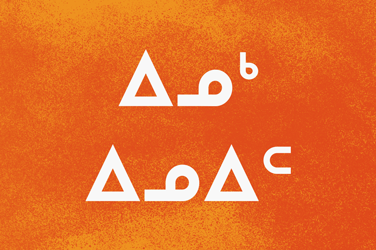In 2009, the Translation Bureau issued a recommendation on the use of the terms “Inuk” and “Inuit.” The Bureau has now published a new recommendation that reflects the current usage in 2023.
Background
In 2009, the Translation Bureau recommended that the term “Inuit” be used in English as a plural noun and as an adjective, and that the term “Inuk” be used only as a singular noun. However, the use of these terms in English has evolved with the passage of time, and the Translation Bureau has therefore revised its recommendation to keep abreast of modern usage.
Recommendation
The Translation Bureau continues to recommend the use of “Inuit” as a plural noun and the use of “Inuk” as a singular noun in reference to persons, in keeping with the meaning of these terms in Inuktitut.
It’s now acceptable to use “Inuk” as an adjective also. But there’s an important caveat: “Inuk” can be used only to modify a person, never an object. And it must be used with a singular noun, not a plural one:
- An Inuk singer won the Indigenous Music Award for best album.
With plural nouns designating people, and with all other nouns, whether singular or plural, the adjective to use is “Inuit”:
- A group of Inuit drummers is performing at the music festival.
- The children were captivated by the storyteller’s account of the Inuit legend.
“Inuit” can also be used in place of “Inuk” with singular nouns designating people:
- The Inuit sculptor works in soapstone.
For more specific information, consult the Translation Bureau’s Linguistic Recommendation on “Inuk” and “Inuit (opens in new tab).”
Meaning in Inuktitut
It’s important to note that in Inuktitut, the noun “Inuit” is plural in form and refers to several persons. Therefore, it remains invariable in English, and an “s” should not be added to the end of the word to pluralize it.
In addition, because “Inuit” means “the people,” it would be redundant to say “the Inuit people” in English. “Inuit” is used alone as the plural noun:
- Preserving cultural traditions is of great importance to Inuit. (not “to Inuit people” or “to the Inuit people”)
Certain terms relating to Indigenous realities, including the terms “Inuk” and “Inuit,” are addressed in the Guide on Equity, Diversity and Inclusion Terminology (opens in new tab), which a large number of federal departments and agencies contributed to. It’s important that Indigenous realities be taken into consideration in any discussion about equity, diversity and inclusion, which, like reconciliation, are priorities for the Government of Canada. The Translation Bureau’s recommendation in regard to the use of “Inuk” and “Inuit” as nouns corresponds to the information provided in the Guide, which underwent extensive discussion and consultation.
As you can see, the terms “Inuk” and “Inuit” are perhaps a little more complex than you might originally have thought. But with the explanations and examples given here and in our recommendation, you’ll have no trouble mastering their correct use.

